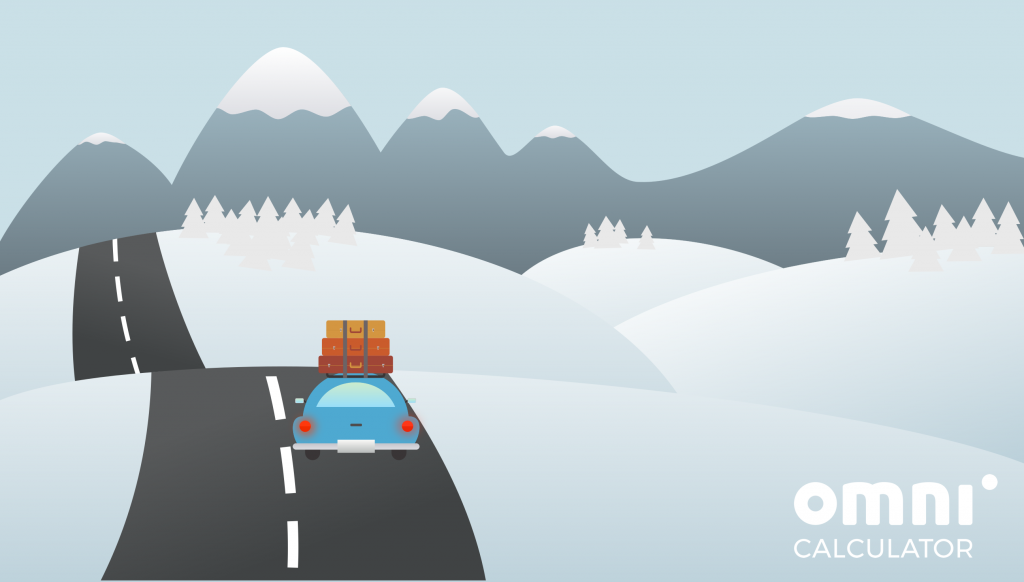Concepts addressed: unit conversion, velocity calculations.
Recommended grade: 8th.
Difficulty level: Basic.
An advanced version of Mountain trip is also available.
Scenario:

Winter break is here, and you’re planning a trip to the mountains for a few days with three friends. The cabin you’ll be staying in is a hundred miles away, so you decide to make it a road trip and go there by car:
- How long will the ride take if you travel at 60 mph on average, with one 15 min stop along the way (the stop doesn’t affect the average speed)?
- How much will the trip cost (there and back) per person if the car burns a gallon of fuel every 25 miles, and gas costs $2.60 per gallon? Include $20 for those necessary snacks.
- When you get close to the destination, it turns out that the last thousand feet are inaccessible by car, so you have to walk. Assuming that your walking speed with your bags is, on average, 3 mph, how long will it take for you to cover this final? Give the result in minutes.
Useful calculators:
- Speed calculator – https://www.omnicalculator.com/everyday-life/speed
- Gas calculator – https://www.omnicalculator.com/everyday-life/gas
- Conversion calculator – https://www.omnicalculator.com/conversion/conversion-calculator
Question 1 hints:
Question 2 hints:
Question 3 hints:
Solutions:
Step-by-step solution:
t_driving = s / v = 100 mi / 60 mph = 5/3 h = 1 hr 40 min.
But that is not the time of the whole trip, since we want to make a 15 min break on the way. Therefore, the total time is
t = t_driving + 15 min = 1hr 40 min + 15 min = 1hr 55 min.
Now is the time to include the snacks. The scenario tells us that we’ll be buying $20 worth of them, which gives
total_cost = fuel_cost + snack_cost = $20.80 + $20 = 40.80.
Lastly, just as in the gas calculator, let us divide that sum by the number of passengers, which is 4, to find how much everyone has to pay:
cost = total_cost / no_of_passengers = $40.80 / 4 = $10.20.
Note that in our calculations, we need the units to agree, so we need to change the distance to miles. Let’s use the conversion calculator to get s_walk = 1000 ft = 0.1894 mi.
Now we are ready to calculate the time it will take us to walk the distance:
t_walk = s_walk / v_walk = 0.1894 mi / 3 mph ≈ 0.0631 hr.
The scenario, however, wants us to give this time in minutes. We know that one hour is 60 minutes. Therefore,
t_walk ≈ 0.0631 hr = 0.0631 * 60 min = 3.786 min ≈ 3 min 47 sec.